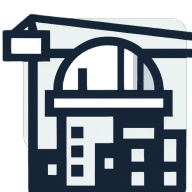The Role of Artificial Intelligence in Construction: 7 Applications
Artificial intelligence is revolutionizing the construction industry in unprecedented ways. This article explores seven key applications of AI, from enhancing jobsite safety to preserving traditional craftsmanship skills. Drawing on insights from industry experts, it reveals how AI is transforming project management, optimizing operations, and shaping the future of construction.
- AI Accelerates Construction Safety and Efficiency
- Predictive Modeling Transforms Project Management
- AI Tools Optimize Inventory and Customer Service
- Digital Apprenticeship Preserves Craftsmanship Skills
- AI Enhances Jobsite Safety Through Predictive Analytics
- Predictive Maintenance Revolutionizes Equipment Management
- Drones and BIM Integration Improve Site Safety
AI Accelerates Construction Safety and Efficiency
Artificial intelligence is poised to be a game-changer for the construction industry. From my experience helping firms modernize their IT infrastructure, I've seen how AI can accelerate operations, identify safety issues, and even assist companies in reducing their environmental impact. A client in Florida recently began using AI to monitor their job sites with real-time video analysis. They quickly observed fewer accidents and improved compliance with safety protocols. When you can predict a hazard before it occurs, you not only save money—you protect people.
One promising application is AI-powered scheduling. Elmo Taddeo and I discussed this with a general contractor last year. They were struggling to coordinate dozens of subcontractors and materials deliveries. We recommended an AI tool that analyzed past delays and local weather patterns. Within weeks, their schedule became more streamlined and costs decreased. It wasn't about replacing workers; it was about providing their team with better tools to make smart decisions quickly. Construction operates on tight margins—every efficiency counts.
If you're in construction and considering using AI, start with your data. Keep it organized, accessible, and secure. Consult with your IT team or an advisor who understands both technology and your industry. Train your staff early and involve them in the process. The goal isn't to replace jobs; it's to make jobs safer, projects cleaner, and your company more competitive. When implemented correctly, AI won't just change how you build—it will improve what you build.
Predictive Modeling Transforms Project Management
What is your perspective on the use of artificial intelligence (AI) in construction?
Artificial Intelligence is expected to disrupt the way construction projects are designed, logged, and constructed. It's not just a fad — it's a structural change in how we think about labor, efficiency, and risk. Most people immediately think of automation or robots laying bricks, but the true power of AI is upstream — before the first nail is driven. For example, predictive modeling technologies that analyze historical and real-time data to predict project delays or cost overruns have already been found to be more accurate than traditional Gantt charts or even seasoned project managers' instincts.
One use of AI that I find particularly exciting is materials optimization. I've taken a hit by overordering drywall or underestimating the square footage of flooring needed because site conditions deviated slightly from the plan, or the plan changed mid-project. When used in conjunction with drone scans and 3D models, AI systems are able to remeasure material needs in real-time and are claimed to cut waste and cost. I have seen a crew in Kansas City use this system — just a mid-sized outfit building residential multifamily — and they shaved 11% off their materials budget. The AI tool would modify the orders live as the location and size of the wall framing shifted to accommodate a surprise plumbing re-route.
There's also some long-term thinking in the mix. AI isn't just for the build of tomorrow — it can be used to develop more resilient real estate portfolios by modeling how a building will age under specific environmental or usage conditions. For my own rehabs, that means I can input moisture readings and HVAC use for similar homes and have a better sense of where to bolster insulation or ventilation. It's not flashy, but these are the kinds of marginal gains that add up across a portfolio.

AI Tools Optimize Inventory and Customer Service
AI removes friction. Every delay, misquote, or inventory issue cuts into the margin. AI eliminates that waste by giving teams faster data, smarter tools, and more accurate decisions.
One high-impact use is predictive inventory management. Demand for flooring shifts by region, season, and build cycle. AI tools analyze years of order data, shipping trends, and regional growth to forecast demand down to the SKU level. This reduces stockouts and dead inventory. You get tighter control, faster turns, and better cash flow.
Room scanning is another practical AI application. Homeowners and contractors use AI-powered apps to scan a room, auto-generate measurements, detect obstacles, and receive flooring recommendations. No tape measures, no manual calls. Faster quotes, tighter fits, and less waste on installation day.
Customer service is also evolving. AI chatbots now answer complex product questions, guide users through installation videos, and schedule callbacks with real representatives. That's not just convenience; it's conversion. Faster support equals higher trust and fewer abandoned carts.
AI isn't a buzzword. It's a working tool that trims costs and speeds up growth. Companies that wait lose ground. The ones that act gain market share.
Digital Apprenticeship Preserves Craftsmanship Skills
A construction company in Japan didn't use AI to replace workers; instead, they used it to digitally copy the skills of master masons. This cut the time it took to train new hires in half and improved the accuracy of tasks by more than 40%.
This changed how I thought about AI in construction. I didn't just see it as automation; I also saw it as a way to protect human craftsmanship. In my own rental business, I lost up to 18% of my monthly income because contractors weren't always skilled enough to finish units on time. This example showed that AI can not only make things more efficient but also improve quality.
This kind of AI, which is trained on video data and job performance, lets companies share knowledge immediately, in addition to robots and 3D printing. McKinsey says that these kinds of applications can make construction work up to 50% more productive. But that number is just the tip of the iceberg. The real value is in speeding up learning curves and eliminating the guesswork from complicated manual work.
For people like us who need things done quickly, whether it's for rentals, commercial renovations, or seasonal operations, that's not just a game-changer. It's a way to maintain business stability.
AI Enhances Jobsite Safety Through Predictive Analytics
I believe artificial intelligence holds tremendous transformative potential for construction—and the exciting thing is, we've barely scratched the surface of what's possible. AI is already reshaping other major industries, optimizing processes, improving safety, and boosting efficiency; the construction sector is primed to achieve similar benefits.
One promising area I'm particularly interested in is AI-driven predictive analytics for safety and risk management on construction sites. Imagine leveraging AI algorithms to analyze real-time data from wearable tech, digital sensors, and cameras, predicting and alerting site managers of possible hazards before incidents occur. This insightful approach enhances safety, reduces costly delays, and ultimately protects workers—truly a win-win scenario.
Just as I've successfully integrated AI within Micro-SEO strategies for marketing, I see the same potential here: blending human expertise with AI-driven forecasting and real-time analytics. This would transform job sites into smarter, safer, and more efficient environments.

Predictive Maintenance Revolutionizes Equipment Management
Artificial Intelligence (AI) is poised to revolutionize the construction industry by enhancing efficiency, safety, and cost-effectiveness. A standout application is AI-powered predictive maintenance for construction equipment. By analyzing real-time data from sensors and cameras, AI can forecast mechanical issues before they occur—minimizing downtime, reducing costly repairs, and preventing on-site accidents. This proactive approach not only cuts operating expenses but also improves worker safety and project timelines. Despite the industry's historical resistance to digital transformation, integrating AI technologies like machine learning and computer vision offers a clear path to smarter, safer, and more sustainable construction. As highlighted in recent literature, this shift is crucial for overcoming productivity challenges and adopting data-driven decision-making in one of the least digitized industries.

Drones and BIM Integration Improve Site Safety
AI in construction holds incredible promise, particularly in enhancing safety protocols and on-site risk management. One application I find particularly exciting is the use of AI-powered drones for site inspections. These drones can quickly assess job sites, identify potential hazards, and monitor compliance with safety regulations. By analyzing real-time data, AI can flag issues before they become serious problems and help to create a safer work environment.
Integrating AI with building information modeling (BIM) can also streamline the design process so teams can visualize potential conflicts in construction early on. This integration can save time and reduce costly rework.





